Newsdeck
Iran nuclear talks gain traction
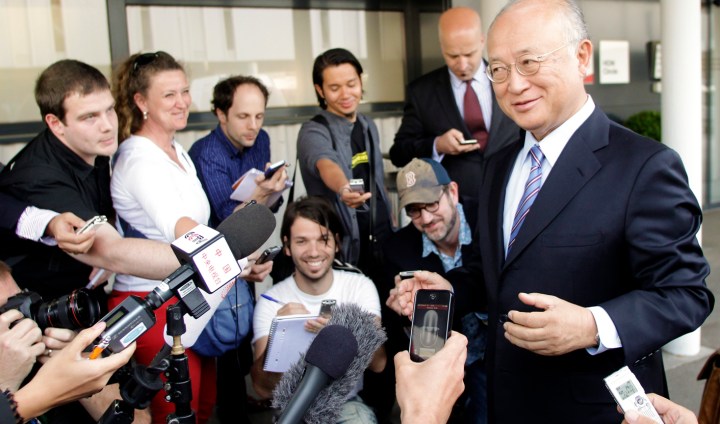
Iran's leadership is confident any nuclear deal with the "Iran Six" in Baghdad on Wednesday will not sacrifice the national interest. By M K Bhadrakumar
Tehran reckons France’s presidential change and the eurozone crisis have sapped Europe’s fighting spirit and keeping oil prices stable before November’s election is cooling hawkish sentiment in the US. When Iran proposed and the P5+1 accepted their next round of talks be scheduled for 23 May in Baghdad, Western observers didn’t notice the significance of the date. It’s a memorable day in the folklore of the Iranian revolution as the day the tide of the Iraqi war when the port city of Khorramshahr was “liberated”.
Khorramshahr is etched deep in the Iranian psyche. When this was noted in Iran’s parliament on Sunday, the archetypal symbol of resistance, honour and victory was invoked. Clearly, the Iranian regime is reassuring the public that Iran’s vital interests will be defended in any nuclear deal with the West.
In an extraordinary press conference in Tehran, the influential chairman of the parliament’s national security and foreign policy commission, Alae’ddin Broujerdi, went to great lengths to stress this while signalling to the West the regime was unified in entering a constructive phase. Among key points he made were:
- An understanding can be reached with P5+1 (US, Britain, China, Russia and France plus Germany).
- P5+1 is under compulsion to reach an understanding with Iran despite Israel’s influence over the White House continues to pose a hurdle.
- The Baghdad talks “could serve as a beginning to an end”.
- Tehran hopes the P5+1 will be pragmatic.
- A final understanding is possible if the other side appreciates Iran’s “goodwill”.
- Despite renewed rhetoric, the possibility of a US or Israeli military strike has “faded away”.
It is a message of cautious optimism ahead of Baghdad talks. Other key figures in the regime have also spoken on similar lines apparently calling on the US to be cooperative.
Iran’s foreign minister Ali Akbar Salehi conveyed the same sentiment, saying that the P5+1 would adopt a “positive and constructive approach” at the talks so that optimal use could be made of the opportunity. Salehi said this during a phone conversation with his German counterpart Guido Westerwelle on Saturday even as Chancellor Angela Merkel arrived at Camp David for the G-8 summit meeting
Salehi and Westerwelle appear to have discussed the agenda of the Baghdad talks and they “expressed the hope that the talks would result in positive achievements and lead to a step forward in the settlement of the Iran-West nuclear impasse”. Obama later held a bilateral meeting with Merkel.
Meanwhile, a sudden visit by the director general of the International Atomic Energy Agency (IAEA) Yukiya Amano to Tehran on Sunday will complicate the dynamics of the negotiations in Baghdad – even raising the hopes of a deal on closer cooperation between the IAEA and Iran. If a deal is clinched, Tehran may accede to the request by the IAEA inspectors to visit its military installations at Parchin.
Amano was accompanied by IAEA chief inspector Hermann Nackaerts and deputy director general Rafael Grossi, which makes it a “working visit” with a dense agenda. Amano would be expected to wrap up the three rounds of talks held this year between Iranian negotiators and the IAEA (in January and February in Tehran and in May in Vienna) and to formalise the common decisions in a document. Tehran’s calculation would be to leverage a deal with the IAEA on the scope and principles of cooperation at the Baghdad talks.
Tehran knows circumstances are working in its favour. The change of leadership in Paris bodes well insofar as that even at the very least, President Francois Hollande lacks the preachiness or the zeal shown by his predecessor Nicolas Sarkozy to punish Iran and drive it into a corner.
Second, the political mood in Europe as a whole has dramatically changed in the weeks since the Istanbul meeting on April 14. No European capital is threatening Tehran anymore – especially not London – and the European summit due this week in Brussels is totally inundated by the angst over how to shift the terms of the eurozone crisis debate. Without doubt, oil imports from Iran against outstanding payments due from Tehran are of more pressing interest to countries such as Italy today than ever before.
For President Barack Obama, too, the stakes are high. A breakdown of the Baghdad talks is highly problematic since there is no viable Plan B. The imperative need is to keep oil prices under control in a crucial election year in the US. The easing of tensions with Iran has already helped in this regard. Simply put, low oil prices would help the economic recovery in the US while skyrocketing prices would upset the US consumer and might trigger negative political consequences at the keenly fought election in November. On the other hand, a breakthrough at the Baghdad talks helps Obama ward off the criticism by the pro-Israel lobby regarding his decision to engage Iran in negotiations.
From this perspective, the Camp David Declaration adopted by the G-8 summit on Saturday will be viewed with satisfaction in Tehran. Interestingly, the spate of Iranian statements voicing hope and optimism followed the release of the G-8 declaration. The key portion of this declaration relates to the need for Iran to take “near-term, concrete steps” within the ambit of a “step-by-step approach based on reciprocity”.
This is based on the original Russian formula that Iran should be “incentivised” to move forward, which takes the form of the West steadily, incrementally dismantling the sanctions regime, and the final goal being a “comprehensive negotiated solution” that is verifiable by the IAEA.
Equally, the Camp David Declaration refrains from making any demands on Iran’s nuclear programme as such. It also affirms that the negotiations will be held within the framework of the nuclear Non-Proliferation Treaty.
The G-8 took into account the agenda for the meeting in Baghdad, which has been drawn up by Ali Bagheri, Iran’s ace negotiator, and Helga Schmid, deputy to the EU foreign policy chief, in under-the-radar confidential discussions held at Geneva through last week. DM
Credit: This edited article is used courtesy of Asia Times Online (http://www.atimes.com/), who retain copyright.
Photo: International Atomic Energy Agency (IAEA) Director General Yukiya Amano briefs the media before his trip to Tehran at the international airport in Vienna May 20, 2012. REUTERS/Leonhard Foeger







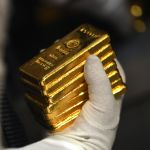
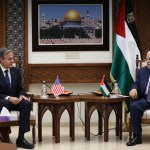
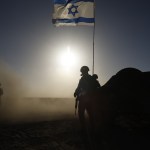
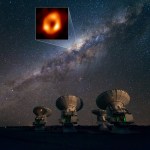







 Become an Insider
Become an Insider